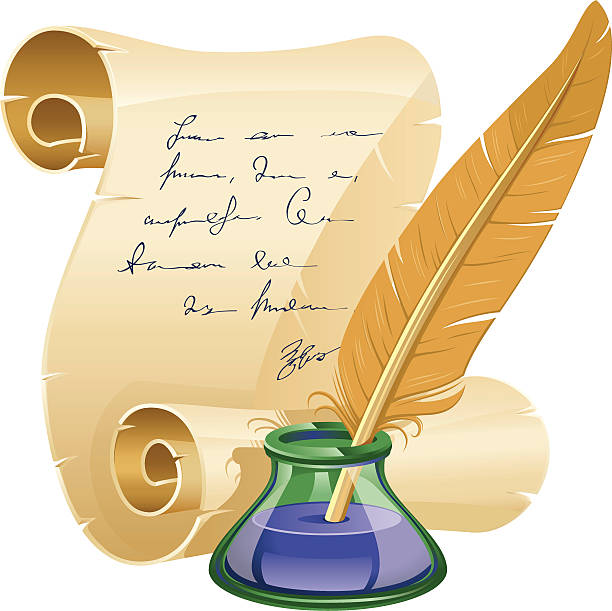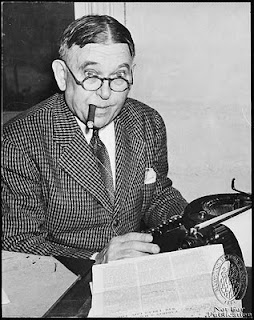The View from Afar
Writings by retired newspaper publisher Stephen Waters

The impetus to learn
Stephen B. Waters May 4, 2022
What happened.
In 1980, on a business trip, heeding tornado warnings, our pilot diverted from Tulsa, OK, to Dallas, TX, to wait until the threat ended. Art an airport bookstore, to pass time we purchased a book by surgeon Lewis Thomas. One of the essays in his book explained, “Why Montaigne is not a Bore.”
Although tolerably well educated, with majors in History and Political Science, we had never heard of Montaigne. Montaigne wrote about what he knew best: himself, his experience, and his thoughts. He referenced great minds across history who also turned their intellects to the simple daily problems of living. Why had my schooling kept such insight from me? Thus, a renewed impetus to learn.
The impetus to learn
- Thomas, Lewis. The Medusa and the Snail. Viking Press, 1979. Print.
- Contains “Why Montaigne is not a Bore,” the essay that started the rush to learn more about wisdom to be gleaned from formidable thinkers of the past.
- Montaigne, Michel de. Essays. Hammondsworth, Middlesex, England: Penguin Books Ltd., 1958. Print.
- An abreviated version of Montaigne’s most popular essays, discussing what he thought about in the late 1500s.
- Montaigne, Michel de. Complete Essays of Montaigne. Trans. Donald Frame. Stanford, CA: Stanford University Press, 1943, 1948, 1958, 1965. Print.
- Complete essays of the author’s reflections on what he believed mattered that he could speak to with experience. Montaigne said, ‘There never was street-porter or a silly woman who was not sure of having as much sense as was necessary. We readily recognize in others a superiority in courage, physical strength, experience, agility, or beauty. But a superior judgment we concede to nobody.’
- Seneca, Lucius Annaeus. Letters from a Stoic. Hammondsworth, Middlesex, England: Penguin Books ltd., 1969. Print.
- Montaigne quoted Seneca, yet another thinker too many present-day courses ignore.
Classical history and thought
- Confucius. The Analects. Hammondsworth, Middlesex, England: Penguin Books Ltd., 1979. Print.
- "To fail to speak to a man who is capable of benefiting is to let a man go to waste. To speak to a man who is incapable of benefiting is to let one's words go to waste. A wise man lets neither men nor words go to waste." Confucius also taught the sense that other people exist, “Don’t do to anybody else what you wouldn’t have them do to you.”
- Cousineau, Phil. Once and Future Myths: The Power of Ancient Stories in Our Lives. Berkeley, CA: Conari Press, 2001. Print.
- Many academics cheat students of the underlying wisdom to be found in myths. They were created to teach worthwhile lessons.
- Fears, J. Rufus. The Wisdom of History. 3 vols. Chantilly, VA: The Teaching Company, 2007. CD, print.
- Fears enumerated four freedoms: individual freedom where others are tolerant of behavior, economic freedom to own what you earn, political freedom to select your type of government and governors, and national freedom to live independently of foreign rulers.
- Kapuzcinski, Ryszard. Travels with Herodotus. New York: Vintage Books, 2008. Print.
- It’s too easy to discount ancient insight simply because it is ancient. When one is curious, threads of wisdom can come from anywhere and anywhen.
- Kreeft, Peter. What Would Socrates Do?: The History of Moral Thought and Ethics. Barnes & Noble, USA: Recorded Books, LLC, 2004. CD, print.
- Socrates asked, ‘What can we know?’, ‘How should we act?’, and “How should one deal with others?’ The wisdom of Socrates was constrained by limitations of the ancient Greek language where certain words had to be used to mean different things. Polis meant city, state, and culture. Nevertheless, threads of wisdom continue to be worthwhile.
Literature
- Bowers, John M. The Western Literary Canon in Context. 6 disks. Chantilly, VA: The Teaching Company, 2008. CD, Print.
- How seldom we study the lessons previous generations considered valuable in their time! Bowers advises that “Assimilators versus destroyers’ is a much more descriptive label. Assimilation is a two-way street, as contemporary music clearly shows. Bowers reminds us that in 500 A. D. Severinus Boethius wrote about major literary and philosophical tracts by Homer and Aristotle that faded away in Europe and were not rediscovered for a thousand years. If the wisdom had been spread wider, imagine the quality of life that might have been had by the people who lived then had a thousand more years worth of study of those books.
- Spurgin, Timothy. The English Novel. 2 vols. Chantilly, VA: The Teaching Company, 2006. CD, print.
- Spurgin gives examples of how each generation’s literature reflects the issues of the day.
- Vandiver, Elizabeth, Noble, Thomas F. X., Heffernan, James A., Heinzelman, Susan Sage, and Herzman, Ronald B. Great Authors of the Western Literary Tradition. 2nd ed. 7 vol. Chantilly, VA: The Teaching Company, 2004. CD, print.
- Examine character over the course of time as represented in literature.
Thinking clearly
- Bronowski, Jacob. Magic, Science, and Civilization. New York, NY: Columbia University Press, 1978. Print.
- Learn to distinguish magic from science or you will be too easily manipulated. Bronowski warned, ‘you cannot possibly maintain that informed integrity if you let other people run the world for you while you yourself continue to live out of a ratbag of morals that come from past beliefs.’
- Frankurt, Harry G. On Bullshit. Print.
- We seldom teach the difference between bullshit, blather, and noise.
- Jaynes, Julian. The Origin of Consciousness in the Breakdown of the Bicameral Mind. Boston, MA: Houghton Mifflin Company, 1976. Print.
- Sometimes we think we are right, not because we are right, but simply because we think we are right. Consciousness requires us to validate our conclusions. Julian Jaynes’ investigations of literature deduced that how we think about what we think has changed.
- Joseph, Sister Miriam. The Trivium: The Liberal Arts of Logic, Grammar, and Rhetoric. Philedelphia, PA: Paul Dry Books, 2002. Print.
- Schools used to teach students to think. Since the 1500s, schools teach subjects and hope students learn to think. There is no humility in that.
- Mitchell, Richard. Less Than Words Can Say. Boston: Little, Brown and Company, 1979. Print
- Words are how people think, yet they seldom value them. Richard Mitchell was a college grammarian who dissected the casual approach to words of those on his campus in a newsletter, typeset by hand, called The Underground Grammarian
- Pirie, Madsen. How to Win Every Argument. New York: Continuum International Publishing Group, 2006. Print.
- Not since the Middle Ages have academics encouraged students to detect and discount logical fallacies. That has left people unprepared to reason with others.
- Sayers, Dorothy. “Lost Tools of Learning.” Web. 17 Jan 2010. <http://www.gbt.org/text/sayers.html>
- “So we send our children into battle unprepared to defend themselves against the onslaught of words, words, words.”
- Zarefsky, David. Argumentation: The Study of Effective Reasoning. 2nd ed. 2 vols. Chantilly, VA: The Teaching Company, 2005. CD, print.
- We think we know how to think when, if we see not the need to check our work, we only know how to feel.
- Wikipedia. Joshua Knobe. <http://en.wikipedia.org/wiki/Joshua_Knobe>
- Philosophically examines how people engage in intentional acts.
Economics
- Braudel, Fernand. The Structures of Everyday Life: The Limits of the Possible. 3 vols. New York: Harper & Row, 1979, 1981. Print.
- Braudel noted that if Voltaire were suddenly to appear in our living room, he would marvel at the absence of a smoky fireplace, but, on the plane of ideas, he would be able to carry on a conversation as if he had just walked in from next door. That was Braudel’s first great insight. The second was that the price of bread matters. He tracked the cost of wheat across four centuries of the Middle Ages, examining the quality of life. You are unlikely to consider that citizens of Rome of the first two centuries after Jesus probably enjoyed the most individual liberty, the greatest economic freedom, and greater freedom from external oppression than individuals at any other time in history, including today.
- Friedman, Milton. Capitalism and Freedom. Chicago: University of Chicago Press, 2002. Print.
- For all schools pretend to teach about economics, they too often don’t treat free market capitalism as a process that manages social integrity far better than do-goodism.
- Muller, Jerry Z. Thinking about Capitalism. The Teaching Company. Online
- Pieter de la Court, a textile manufacturer from Leiden, NL, in 1662, published "The true interests and political maxims of the Republic of Holland." The Thinking Company’s course “Thinking about Capitalism” explains that de la Court linked Holland’s republican style of government to free trade, arguing that the power of Holland to defend itself depended on free trade policies. Some of de la Court’s maxims include: 1) “Freedom for all people that will cohabit with us to follow any occupation for a livelihood.” That establishes freedom of occupation. 2) “Monopolizing companies and guilds that exclude all other persons from their societies are very prejudicial to Holland.” That establishes more economic freedom. 3) “Toleration regarding the worship of God is a powerful means to preserve many inhabitants in Holland and attract foreigners to dwell among us.” That links trade and toleration. These are lessons we seem often to forget.
- O’Rourke, P. J. On the Wealth of Nations. New York: Atlantic Monthly Press, 2007. Print.
- Distills 900+ pages of Adam Smith to an eminently reasonable 100+ pages. O’Rourke referred to Richard Brookhiser’s biography of George Washington, Founding Father to explain how people looked at things differently 200 years ago. ‘We worry about our authenticity — about whether our presentation reflects who we “really” are. Eighteenth century Americans attended more to the outside story and were less avid to drive putty knives between the outer and inner man. “Character” . . . was a role one played until one became it; “character” also meant how one’s role was judged by others. It was both the performance and the reviews. Every man had a character to maintain; every man was a character actor.’ Children and adults today can live by the 18th century standard where character was a role the immature would play until they discovered through life experience what constituted real character. The alternative is to establish a solid foundation of process concepts that lead to character among those capable of grasping it. Experience can reveal patterns that, if we choose to recognize and think about them, can give us insight into a more advantageous way to thin
History
- Fischer, David Hackett. Washington’s Crossing. New York, NY: Oxford University Press, 2004. Print.
- A particular event in history written from the point of view that individual decisions matter.
- McCullough, David. 1776. New York: Simon & Schuster, 2005. Print.
- The first chapter relates the conflicting issues with which British and American leaders wrestled. The last chapter celebrates perseverance, the character trait that mattered most.
Journalism
- Burns, Eric. Infamous Scribblers: The Founding Fathers and the Rowdy Beginnings of American Journalism. New York: PublicAffairs/Perseus Books Group, 2006. Print.
- Despite what “professionals” claim, journalists from the beginning never considered integrity to be key to earning income.
Recursion
- Escher, M. C. Print Gallery. 1956 Lithograph. Web. 16 Jan 2010. <http://www.mcescher.com/Gallery/recogn-bmp/LW410.jpg>
- An image that represents the dynamic process of thinking about thinking.
- Hofstadter, Douglas. Gödel, Escher and Bach: An Eternal Golden Braid. New York: Vintage Books, 1980. Print.
- Hofstadter wrestles with representing how to present to people the recursive concept of thinking about thinking, often represented in the etchings of M.C.Escher.
- Laing, R. D. Knots. London: Penguin. 1970. Print.
- Laing’s kernels represent the complexity of thinking about thinking. When one becomes comfortable with recursion. One’s thoughts can become more settled and one’s problem-solving more acute.
Political philosophy
- Heilbroner, Robert. Marxism: For and Against. New York: W. W. Norton & Company, 1980. Print.
- Simple wisdoms refine processes used to make decisions. Process matters because, as Heilbroner pointed out, when you master logic, logic masters you. It becomes compelling and unavoidable. When you understand that two plus two equals four, nothing will entice you to believe it equals five.
- Robinson, Daniel N. The Great Ideas of Philosophy. 2nd ed. Chantilly, VA: The Teaching Company, 2004. 125. CD, print.
- Philosophy need not be abstract. Philosophy at its best deals with the simple daily problems of living.
- Pirie, Madsen. 101 Great Philosophers. New York: Continuum International Publishing Group, 2009. Print.
- We know so little beyond clichés about those who turned their great intellects to thinking about thinking.
Writing
- Landon, Brooks. Building Great Sentences: Exploring the Writer’s Craft. 2 vols. Chantilly, VA: The Teaching Company, 2007. CD, print.
- When one sees writing grow, one adds to one’s own ability to express thoughts.
Miscellaneous
- Bronowski, Jacob. Ascent of Man. Boston: Little, Brown & Company, 1973. Print.
- Bronowski: "There are two things that make up morality. One is the sense that other people matter: the sense of common loyalty, of charity and tenderness, the sense of human love. The other is a clear judgment of what is at stake: a cold knowledge, without a trace of deception, of precisely what will happen to oneself and to others if one plays either the hero or the coward. This is the highest morality: to combine human love with an unflinching, a scientific judgment."
- Eco, Umberto. Confessions of a Young Novelist: On the Advantages of Fiction for Life and Death. October 5-7, 2008. Richard Ellmann Lectures in Modern Literature, Emory University. Podcast.
- Eco believes that the imagined—so prominent in postmodern literature—and real coexist to reinforce each other. He reminds us that mythical creatures are real insofar as they have impact.
- Morrison, Philip and Morrison, Phylis. Powers of Ten. New York: W.H. Freeman & Company, 1994. Print.
- A kind of balance comes from facing where one fits in the scope of the universe.
- O’Neill, Eugene. Long Day’s Journey into Night. New Haven: Yale University Press, 1955. Print.
- O’Neill on sometimes enlightenment: “For a second you see -- and seeing the secret, are the secret. For a second there is meaning! Then the hand lets the veil fall and you are alone, lost in the fog again, and you stumble on toward nowhere, for no good reason!”
- Perry, Mark. “In The Currency of Time, Good Old Days Are Now.” Carpe Diem. 11Feb2008. Web. 20 Dec 2009. Link.
- Perspective in the form of numbers.
- Schmidt, James. Making Man in Reason’s Image: The Enlightenment and the Birth of Modern Humanity. USA: Barnes & Noble, 2006. CD, print.
- Climbing out of superstition into individuality.

Stephen B. Waters
In early 2021, with 46 years in the business, I retired as publisher of the Rome (NY) Daily Sentinel
After five generations of family ownership, despite an unsettled economy, we keep on. We understand that although we may own the newspaper, we hold it in stewardship for the community.
Across my career, so many other small newspapers were purchased by media chains, large newspapers sold their integrity, and broadcast news outfits fell back on superficial entertainment.
They put journalism in this country at risk. The best antidote is for individual readers to arm themselves to recognize the danger to their community, culture, and society itself.
Index
-
 sbwTweet
sbwTweet
Mostly Links and Retweets -
 Essays
Essays
Writings across time -
 Editorials and columns
Editorials and columns
For the newspaper -
 Presentations
Presentations
Community discourse -
 Books
Books
Published and available -
 Audiobooks
Audiobooks
Readings and more